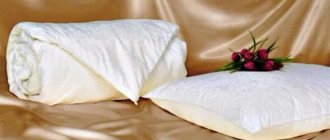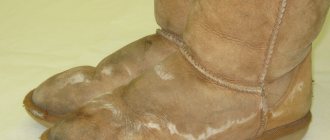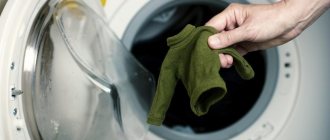To prevent the washing machine from breaking due to overload, you need to monitor the weight of the laundry. How to calculate the weight of laundry for a washing machine - do not weigh it every time?
Of course, modern models are equipped with a weighing function, but what to do if your machine is more than a year old? We'll talk about this further.
How is dry laundry weighed?
Modern machines with a laundry weighing function operate on a different principle.
They are able to accurately determine the weight of things loaded into the drum in kilograms. Based on the measurements, refuse to start the cycle due to excess or propose a special program to save energy and water consumption. The engine acts as a laundry scale. The motor in such models is located directly on the axis of the drum, which allows you to monitor the rotational force and the voltage generated by the engine. Using the obtained values, the washing machine processor calculates the load and displays the weight of the laundry. Moreover, the program will not start until the machine has weighed. Conventional machines will immediately display the washing time after pressing the “Start” button, and then automatically start the cycle. Auto-weighing washing machines first determine the weight of the laundry, and only then offer the user a specific mode with the amount of water required, spin intensity, temperature and duration. This allows you to significantly save costs. Let's look at several models that offer weighing of laundry before washing.
Automatic weighing option in modern AGRs
Modern SMAs are quite “smart”; one of the indicators of this is the ability to automatically weigh the mass of clothes loaded for washing. What is the point of this innovation? The user does not need to think about how much the soiled laundry weighs when it is sent into the machine chamber. The equipment itself determines the weight, calculates the volume of water required for the washing procedure, includes the washing, rinsing and drying process that is optimal for each specific case, and completes the task. The second advantage of the function of automatically determining the weight of loaded items is guaranteed protection against overloads.
Know! There is no need to worry about the possible loading of excess laundry into the chamber. In this case, the washing process simply will not start with the auto-weighing option.
How it works? The engine located on the drum axis performs a certain work and, in accordance with it, uses the power necessary to rotate the chamber of the machine with loaded things. These indicators are read by the electronic filling of the system, calculate the weight of the laundry and display it on the monitor of the control unit. At the same time, the optimal washing program is calculated. If there was an overload when loading things, the system will report this and block the start of the washing process.
Tips for loading laundry
When filling the drum, the following conditions must be observed:
- Before washing, be sure to sort your laundry by color and degree of soiling. White items should be washed separately from colored and dark ones, and more soiled items should be washed separately from less soiled items.
- It is also best to sort by fabric. However, it is better to wash terry items with items made from other fabrics, as they absorb too much water.
- Load large items together with small ones. This will help distribute the laundry evenly throughout the drum.
- Products made from delicate fabrics should be placed in a special laundry bag.
- Laundry should be placed in the machine straightened and not in a pile.
- Be sure to look through the pockets of your things and remove items from them, fasten all the fasteners.
- You need to load laundry so that there is free space inside the drum. This way the laundry will roll more freely inside, which guarantees high quality washing.
If you monitor the amount of laundry loaded into the washing machine and also follow the operating instructions, you can not only extend the life of the household appliance and get excellent washed laundry, but also avoid additional costs.
Minimum load
Let's start with the minimum amount of laundry you can put in the drum, because the minimum is just as important as the maximum. The number of items in the drum during washing will determine the degree of vibration during spinning, and therefore the period of uninterrupted operation of the machine.
Not all washing machine manufacturers indicate this parameter, saying that it is better to put more in the machine to save energy. However, for some, the need to wash three pairs of socks or one T-shirt is more important than saving money, which is not at all safe for equipment. The 1 kg limit is not accidental; the fact is that when spinning at high speeds, the laundry should be evenly distributed throughout the drum for balance.
An unbalanced drum will begin to vibrate more forcefully. Even if the machine is not a narrow model and is installed well, internal vibration remains, and it can cause microcracks. We hope now you understand why you shouldn’t wash just one pillowcase or one panties.
Maximum weight of dry or wet items
Now let's talk about the number that is indicated on the front panel of the washing machine, more precisely, about its maximum load. Today, automatic machines can have a load of 8, 10 and even 12 kg of dry laundry. In reality, this is a lot; for clarity, let’s give an example: a set of bed linen consisting of one duvet cover, one sheet and two pillowcases weighs on average 1.3 kg when dry. This means that about 9 such sets can be placed in the drum of a washing machine with a load of 12 kg. However, you should not blindly trust the numbers; everything is not as simple as it seems.
The technical meaning of the maximum load of the machine in kilograms indicated in the passport is as follows - the machine must rotate the indicated weight without overloading the engine during its service life. But this does not mean at all that you should put such a quantity of linen and clothes into the drum every time, weighing it on scales, and it is unlikely that you will succeed. In addition, at maximum load the manufacturer does not guarantee the quality of washing. Most users note that even if they wanted to, they cannot cram and compact the maximum possible weight.
Most likely, this is also no coincidence. Some washing machine manufacturers, for example Bosch, when testing the machine for maximum load, use dense, heavy fabric cut into small pieces. And, as you know, the denser the fabric, the heavier it is and takes up less volume. Therefore, it easily enters the drum, while there is enough space in the drum for it to flop around. In accordance with these tests, the manufacturer indicates the maximum load with some margin, so that the machine is not overloaded, even when fully loaded.
In reality, we wash clothes and things that are bulkier and therefore weigh less. In addition, water absorption depends on the density and composition of the fabric. Imagine a sofa blanket. When dry, it easily fits into a regular basin. But washing it in a basin by hand will be extremely difficult, almost impossible. It is much easier to wash it in a bathtub, which is several times larger in volume.
The same is true in the drum of a washing machine. The larger the item, the larger the load and drum volume should be.
If you are going to wash jackets, down jackets, blankets in the machine, then you need to choose a machine with a larger load so that the clothes are washed well. The manufacturer takes this into account, and in the instructions for the machine writes the load of laundry for a specific washing mode.
After analyzing this table, we can conclude that regardless of the manufacturer of the washing machine, its load under different modes is approximately the same. The least amount of wool you can put in the drum is because it is the most voluminous and absorbs a lot of water. You shouldn't machine wash a lot of synthetic and delicate fabrics, otherwise they won't stretch and will be too wrinkled.
The most things you can load into the machine are cotton items, bedding and baby clothes. This does not mean that the drum should be filled to capacity. The drum must be filled 2/3 full, so the laundry can be washed and rinsed well.
In addition, this will allow the laundry to be evenly distributed throughout the drum, which will not cause imbalance or poor spinning of the laundry. An imbalance may cause the machine to stop and an error to appear on the display, e.g.
Dependence of weight on the type of things and fabric
Dry bedding with a total weight of up to 3 kg and a wool blanket with the same weight when wet will weigh differently.
How to determine the correct load for the machine? The tips are equally useful for both top-loading and front-loading machines. General recommendations
If the machine is overloaded, problems cannot be avoided. It will begin to exhibit glitches and errors, and may even fail completely.
Possible consequences if overloaded:
Washing in a half-empty drum can also cause damage. The machine load should not be less than 1/3 of the nominal value.
When washing silk and wool, it is preferable to choose a mode without intensive spinning, in warm water. Silk does not like being next to other types of fabrics. You can put 1/3 of the maximum weight allowed in the drum. When washing wool, it makes sense to limit yourself to 1/4 of the nominal load weight.
For synthetic fabrics, the loading weight can be calculated based on the formula x/1.5. That is, for washing in a machine with a maximum load of 6 kg, you can load 4 kg of synthetic laundry.
Cotton fabrics are loaded according to the instructions, but there are some nuances. For example, linen made from calico will weigh more than linen made from satin.
The latest automatic machines are equipped with functions for weighing dry laundry and analyzing the percentage of drum fullness. If you have the opportunity to purchase such a car, then it is better to choose this option. In this case, she herself will tell you when enough is loaded.
About numbers: according to GOST and in reality
The sizes of children's bedding in the GOST standards table are designed for ages from birth to three to four years. The next type of product belongs to teenagers. As you can see, the grid is quite narrow, but in the same document there is a note that some deviations are acceptable.
Download or print yourself a reminder on the parameters of DPB right here:
This is what the table looks like: (from 0 to 4 years)
In fact, there are many more options: the “children’s bedding” label includes sizes up to primary school age; There is no clear division by age, for example, cribs with a 60x120 mattress are used from birth until 2-3 years, the same linen is purchased accordingly; bedding intended for preschool and primary school age can be considered teenage, but it is logical to call it children's. Below are the standard sizes of children's bedding that are relevant today.
3-4 years, from 3 to 11 years
The fitted sheet in single bed linen sets for children must be exactly the same size as the mattress. But you can’t make a “reserve for growth.” We are looking for a crib set with a minimum discrepancy, a maximum of 5 cm. You don’t need to calculate anything, just measure your mattress and look for the resulting numbers on the packaging. For example, for a bed 120x60, opposite the word “size” there will be a designation like:
- "for a mattress 60x120".
- “60x120, side N cm.”
- “60x120+N cm.”
The proportions of a “regular sheet/mattress” set of bed linen for children in the size for kindergarten and primary school age are standard for adults. The tension ones must also fit exactly to the size of the bed.
Important clarification: children's sheets must be sewn from a whole piece of fabric; extensions are not allowed. The skin of babies is more delicate than that of adults, and a seam on the bed, even a flat and neatly made one, can cause them discomfort
In bedding for a child, the size for newborns and toddlers is often one pillowcase, 35x45 or 40x40 cm. In sets for younger schoolchildren - 40x60, 50x70, 70x70 (less often) cm. However, here the division by age is very arbitrary, since in the same sizes According to the parameters of the duvet cover and sheet sets, the pillowcase can be either 40x40 or 50x70.
Weight of laundry when loading a washing machine: nuances
It is important to note that weight and filling depend on the type of fabric. This moment has a number of features:
Light material takes up more space when washing than dense material; The drum of the machine must be loaded completely, but not compacted; filling the drum with synthetic underwear is permissible up to half of it, and with wool – only up to a third; For high-quality washing, it is important to take into account the volume of water used - on average, about 10 liters are required per 1 kg.
Compliance with these rules will extend the operating time of the machine and clothing. In order not to forget about them, you can carry out the necessary calculations in advance and attach them to the side panel of the washing machine in the form of a table.
Weight table
Bed sets
The weight of bed linen for washing can be difficult to calculate on your own - the sets are different in size, and the texture of the material is also different. Don’t worry, we are already in a hurry to help and are ready to do the calculations for you!
Isn’t the table of approximate laundry weights bookmarked yet? Don't hesitate - click the star so you don't lose the article!
| Set size | Calico (kg) | Flax (kg) | Cotton (kg) | Silk (kg) and similar materials |
| One and a half bed sheet | 1,6 | 1,9 | 1,7 | 0,9 |
| 2 bedroom set | 1,9 | 2,1 | 2 | 1,3 |
| Euro size | 2,4 | 2,5 | 2,3 | 1,6 |
| Children's bedding set | 1,2 | 1,5 | 1,4 | 0,6 |
Our washing machine dry weight chart determines how many items you can put in the wash without damaging your appliance.
Don’t forget about wet products - the approximate value in kilograms is given below:
- One and a half - 4.5-4.7;
- Double – 4.2-6.3;
- Euro – 6-7.5;
- Children's – 3.5;
- Duvet cover about 2.4;
- Pillowcase about 0.3-0.6;
- Sheet – 1.5-1.8.
If you are unsure of the pounds of bedding loaded into the drum, just make sure it is one third full. No more! Then everything will be fine
We calculated the weight of laundry for the washing machine in the table - would it be nice to know similar data for everyday clothes? Let's move on! By the way, in another article we’ll tell you how to wash a huge teddy bear.
Loading the washing machine with less laundry
There are also the opposite situations, when you need to wash 2-3 items that weigh a total of less than 1 kg. Many people are not bothered by this washing option, but loading a small volume also negatively affects the operation of the washing machine.
Firstly, the water and electricity consumption of the machine will still be too high. Modern models with auto-weighing can adjust the flow rate, but it will still exceed the required amount.
Secondly, when loading a smaller amount, the machine will have strong vibration from the empty drum. This also affects the wear of bearings and the motor, as does overload.
And thirdly, the washing machine may simply not understand that things are loaded into it and disrupt the washing cycle. This usually manifests itself as a weak spin or insufficient rinsing. You don’t need to call a technician right away; in most cases, it’s enough just to load more things into the machine.
Features of washing clothes made from various materials
The technical characteristics of the maximum load, which are indicated in the passport, show how much weight the engine can crank without the negative consequences indicated above.
We recommend: Why doesn’t the washing machine drain water and what to do in this case?
During testing, small pieces of heavy fabric are used. The density of the material allows for maximum fabric weight for the washing machine and high-quality washing. But at home, fabrics with a lower density are often washed, therefore, it will not be possible to fit a lot of laundry into the drum. A completely filled volume will not allow for proper washing - things cannot be rinsed after treatment with washing powder.
It is worth loading the machine with a slight underload so that the laundry moves freely during the washing process.
Consequences of incorrect loading
The maximum weight of items that can be washed is indicated in the product data sheets.
Exceeding the norm causes dangerous consequences:
- increased load on the electric motor, which has to rotate a crowded drum;
- increased load on bearings of rotating parts of a household appliance;
- incorrect choice of washing mode;
- poor quality washing and rinsing of clothes.
The consequence of exceeding the maximum permissible load on the electric motor is overheating of the motor. The increased temperature causes overheating and gradual destruction of the insulation of the motor rotor windings - and ultimately their short circuit. It's good if it costs you to replace the engine. A short circuit in the electrical circuit in 95% of cases causes domestic fires, especially in old houses with old electrical wiring.
Under the influence of loads exceeding the design ones, the bearings of the rotating parts of the drum and the engine gradually wear out. And this, in turn, causes unacceptable vibration of the housing, which causes mechanical failure of the washing machine parts:
- hose clamps become loose;
- the material of the water supply and pumping pipes is destroyed, causing flooding of the room;
- The contacts of the electrical wiring become loose, which causes gaps in the supply of control commands, melting of the connectors and, as a result, expensive repairs.
A completely filled tank volume does not allow washing with the required amount of water - all parts of the structure are operating in the wrong mode. The laundry remains dirty and has a residue of powder that could not be removed during rinsing.
A small load causes no less harm. During spinning, things are pressed against one side of the drum under the influence of centrifugal forces, causing “mad” vibration. Its consequences are disastrous for an electrical appliance. The bearing seats are destroyed, and vibration increases with each subsequent wash.
Preparing for washing
Before loading laundry into the washing machine, you need to determine what type of material you will be washing. You also need to separate things by color. It is not recommended to wash colored, white and black items in one wash. The level of contamination of things also matters; it is better to wash heavily soiled clothes separately, since in order to get rid of stains and dirt you need to use the additional wash function. It is recommended to wash clothes that contain a zipper, buttons, or buttons inside out. Pillowcases and duvet cover too. It is better to put handkerchiefs, small items, and socks in a special bag designed for washing. Dirty laundry must be stored properly until washed.
It is important that moisture does not get on it, as mold will form.
Consider whether your laundry needs may remain the same for the next few years. If you plan to share your living space with a partner or have children in the near future, you may need to buy a larger machine in anticipation of a larger laundry load.
Consider how often you need to wash comforters, pet beds, curtains and other bulky items. Even if they are not part of a standard wash load, if you wash them relatively often, you need a machine that can accommodate them. If this is the case, either increase your load estimates or pay to purchase a machine with a washer rather than an agitator, which leaves more space inside the tub.
There are special bags for washing small items.
Determining the weight of the laundry
You can determine the weight of the laundry and calculate how much you need to put in the drum using the instructions that come with the washing machine. Weight depends on technical ability and year of production. In modern washing machines you can wash one handkerchief; there are no more limited weights. Early production models have restrictions - the minimum permissible weight of dry laundry is from one to one and a half kilograms
When filling the drum with items, it is important to take into account the type of fabric as items will weigh differently when they are wet. Products that consist of a material that is light in structure will take up more space in the machine when wet than items made from dense fabrics. One kilogram of woolen clothes will weigh more than one kilogram of cotton clothes. The instructions for using the machine indicate that the drum must be filled completely
It is not recommended to compact things tightly. When washing synthetic items, it is permissible to fill the drum up to half. When washing wool products - up to the third part of the drum. During the washing process, you need to take into account the volume of water that the products will require. So, for one kilogram of things, you need ten liters of water
The instructions for using the machine indicate that the drum must be filled completely. It is not recommended to compact things tightly. When washing synthetic items, it is permissible to fill the drum up to half. When washing wool products - up to the third part of the drum. During the washing process, you need to take into account the volume of water that the products will require. So, for one kilogram of things, you need ten liters of water.
Look at the washing machine models and their capacities. Choose the one that suits your needs. A compact washer can hold 8 to 12 pounds of laundry, a top load washer can hold 12 to 16 pounds, a front load washer can hold 12 to 20 pounds, and some higher-capacity machines can hold even more.
Choose a dryer that can hold as much laundry as your washing machine. If you don't wash blankets and other bulky items often, it may be cheaper to take them to the laundromat when needed than to buy a larger washing machine. Stephanie Mitchell is a professional writer who has created websites and articles for real estate agents, self-help coaches, and casting directors. Mitchell also regularly edits websites, business correspondence, resumes, and long-form manuscripts.
Each machine model has its own maximum and minimum load.
Video
An important criterion for the efficient operation of the machine is correct loading. By maintaining the permitted load volume in the washing machine, its service life is extended. At the same time, both the maximum and minimum weight of things affects the operation of the equipment. It is measured in a dry state before starting the wash cycle. By observing certain operating requirements, the owner of the washing machine receives clean laundry and working equipment.
Determining weight is not a difficult task. It can be solved using home measuring instruments or using an online calculator if the model does not have a built-in weight sensor. Data regarding volume on product materials, washing modes and weight of laundry is contained in the technical passport of the machine.
Determining the weight of laundry
You are lucky if your washing machine has an additional laundry weighing function, but if it does not, you will have to determine the weight yourself.
How full should a washing machine be?
Finally, overloading can cause your clothes to become more easily nourished. When overfilled, clothes rub too hard against each other, and this abrasive effect makes them look older and pillier. For all of the following load sizes, remember that they are loosely packed in the washing machine.
The more often you use your machine, the easier it will be to judge when the load is too full. If you are using a top loader this matters as you may have the option to select the load size. If you are using a front loader, this is not a big deal as the washer takes the load and regulates the water as it sees fit.
IMPORTANT! You need to know that for older models of washing machines it is important not only to adhere to the maximum permissible weight. The weight of the minimum load is also of great importance
As a rule, it ranges from 1 to 1.5 kg of dry laundry.
You need to understand that when wet, items made from bulky wool will weigh much more than cotton or light silk fabrics. How to accurately determine weight? Follow some general rules.
Which load should you wash first?
If everyone doesn't have underwear or socks, then the white people go in first. If anyone doesn't have jeans, they get top priority. Even if you have 3 loads of dish towels, don't wash them first if there are no shirts. If you have a small water heater or if hot water is an issue, make sure you wash your loads that require warm or hot water first. You don't want to get stuck at the end of loads of clean white T-shirts in cold water.
How to start a washing machine
Therefore, once you are sure that you are ready to load the machine, you should add detergents and washing accelerators. In the top loader, it is better to add detergents and washing machines first. Then select the cycle and water temperature you want to use. The detergent needs time to dissolve before adding to the clothes. If it doesn't dissolve, it could potentially light up random areas on your clothing, which is definitely not what you want. This is especially true for laundry accelerators, so make sure they are completely dissolved before adding clothes.
- Some recommendations for the operation of automatic washing machines recommend filling the drum completely, but you should not stuff things into it to capacity.
- When washing synthetic items, fill the drum only halfway.
- The drum should only be filled 1/3 full with wool items.
- To wash clothes weighing 1 kg you will need 10 liters of water.
The approximate weight of the products will help you figure out how much laundry you can load into the machine in one wash.
Once dissolved, you can briefly turn off the water flow and then load your clothes. Until you see what a full load of clothes looks like on your computer, it's a good idea to learn with water. As water soaks in, it packs on clothing, which can make it difficult to wear when the load is full. Remember that you don't want to overload the machine. Once you're happy with the load size, turn on the water and let the washer do its thing.
The size of the washer ranges from 5 to 5 cubic feet. Washers designed for flats or folding will have smaller capacities, and the largest seven-size washers will be labeled "plus" or "super". Some washers are labeled based on the weight of the laundry load. For example, a puck labeled 8-pound would be geared toward a small apartment, while one labeled 12- or 15-pound would be a family-size or super-size puck.
How to determine the correct volume without weighing
Since scales are not included with the machine, not every home has them. Even if such a technique is present, weighing bulky laundry is not always convenient, and you don’t want to waste time on this procedure. You can make the correct loads by approximately understanding the weight of each product. The most common ones are shown in the table:
| Product name | Average weight, depending on size, kg | ||
| Male version | Female version | Children's version | |
| Home bathrobe | 500-700 | 400-600 | 150-300 |
| Pajamas (shirt, pants) | 350-500 | 300-400 | 50-150 |
| Winter outerwear | 1400-1800 | 800-1000 | 500-900 |
| Windbreaker | 800-1200 | 400-600 | 300-500 |
| Jeans | 650-700 | 400-500 | 200-400 |
| Trousers | 600-700 | 300-400 | 150-200 |
| Shorts | 250-350 | 150-250 | 80-150 |
| Tracksuit (pants, jacket) | 1000-1300 | 650-750 | 400-600 |
| Business suit | 1200-1800 | 800-950 | |
| Rushaka/blouse | 120-180 | 100-250 | 60-120 |
| T-shirt/undershirt | 220-300 | 70-140 | 30-80 |
| Bed linen | |||
| Towel | 200-600 | ||
| Pillowcase | 180-200 | ||
| sheet | 400-450 | ||
| Duvet cover | 500-650 | ||
On average, you can wash approximately 3-4 towels, 2 pillowcases and 2 towels in one wash. In this volume, the laundry will not twist and tie in knots, preventing the laundry detergent from being fully rinsed. Jackets and down jackets are best left alone in the drum. The quality of washing can also be affected by misalliance such as washing things that are too different in size and structure, for example, denim trousers and thin underwear.
Chlorine-containing
Most common bleaches contain sodium hydrochloride. Additionally, the composition may contain sodium carbonate and hydroxide. Popular products are ACE Brilliant and Belizna. The products are available in the form of a liquid concentrate.
The main advantage of chlorine bleach is that it effectively returns whiteness to clothes even when using cold water. It is quite easy to use: dilute a small amount of the product in water, soak and wash your clothes in it. Such drugs have an ideal price-quality ratio. In addition, they are suitable for disinfecting plumbing fixtures.
However, such funds also have a number of significant drawbacks that seriously make you think about the advisability of the purchase. First of all, they are suitable exclusively for cotton fabrics. Synthetic material will become unusable due to such bleaching, and the laundry will have to be thrown away.
Do not use chlorine bleaches too often. Chlorine is a fairly aggressive component that corrodes fabric and ruins laundry. Bleach should not be added to an automatic washing machine.
Another significant drawback is that such products have a strong and unpleasant smell of chlorine. Even various flavors and fragrances that are used in production cannot interrupt it. In addition, the shelf life of the drug cannot exceed 9 months, otherwise it loses its quality.
Additional functions
Most modern models of automatic machines contain a large set of additional functions that help solve all problems and satisfy the various requirements of housewives.
Delay mode
A convenient way to turn on the washing machine before going to work and take out the finished clothes when you come home in the evening. At the same time, they will not wait for the owner in the drum for several hours, already washed (crumpled and compressed).
You need to read the instructions for the washing machine. First we set the current time and then program it for the desired turn-on time.
Video on how to delay automatic washing
Night
When using the night mode, the sound signal is turned off, as well as the spin cycle, which is noisy and can wake up household members and neighbors.
Water level control
When monitoring the required amount of water, the machine itself decides how much liquid to pour into the drum based on the weight and volume of the load in order to better wash and rinse things.
Spin balancing
The mode ensures uniform distribution of laundry during spinning and, if necessary, slows down the rotation of the drum by adjusting the speed. A very convenient tool for heavy loads, it prevents excessive vibration and movement of the device from its place.
Water clarity control
This mode is convenient to use for children's clothing and if household members are allergic to detergents. The machine determines whether the items have been rinsed sufficiently or whether the water is not clear enough and contains soap. If necessary, perform additional rinsing.
Spin
The function allows you to simply spin out wet items by selecting the spin force (rpm). You can quickly spin out hand-washed items, as well as those that did not leave the machine dry enough.
Drain
This function allows for simple (without additional operations) removal of water from the drum. For example, when a program crashes and things are retrieved.
Rinse and drain
A convenient way to simply rinse things and drain the water. Can be used if bad powder remains on the laundry after washing and rinsing.
Disabling spin
It is necessary to turn off the spin cycle when washing many items. For example, it is recommended not to wring linen items to avoid severe creasing, which makes ironing difficult. The machine simply washes, rinses and drains the water.
Easy ironing
Things wrinkle in the drum, mainly when spinning at high speeds. This mode (anti-crease protection) makes the push-up less aggressive and reduces the drum rotation speed. The laundry wrinkles less, but is less dry. You will have to dry it yourself, but it will be easier to iron.
Foam control
Excess foam does not affect the quality of washing, but simply clogs things with excess detergents. In this mode, excess foam formed during spinning and deposited on things is removed from the drum using a special pump.
A convenient feature that allows the washing module to identify its own problems. The operation of various parts of the device is tested and a fault code is displayed. The instructions usually indicate what problem the code corresponds to and how to fix it.
Important nuances
What else should you pay attention to when choosing? It is better to choose a large loading hatch to make it easier to get out after washing and during the loading process to distribute the weight of the laundry over the entire area of the drum. You can ignore the number of revolutions; the maximum speed develops only in spin mode
Other nuances are much more important:
- repair and warranty service - here it is not worth saving and paying for service for 5-6 years at once, rather than buying other equipment after a similar time;
- purchasing spare parts in the event of a breakdown is a pressing problem, so you need to choose a model so that there are plenty of spare parts in the region;
- effective energy saving is class A++, A+, A and B, which will help save water and electricity.
Take your time when buying household appliances: they should last you more than one year and not cause any inconvenience in use.
tehnika.expert
Rules of application
Before using any fabric bleach, first read the instructions carefully. Determine for which fabrics and at what temperature it can be used.
Before you begin bleaching, remove all metal elements from your clothing (or cover them with tape). The active components included in the products can lead to corrosion of the metal and the appearance of dark spots around it.
Chlorine-containing bleaches are used before the main wash of the product. Dissolve a small amount of product in warm water and soak items according to the instructions on the package. Do not pour bleach directly onto fabric as this may damage it. Wash the item as usual and rinse well to get rid of the unpleasant odor.
Add liquid oxygen bleaches to the washing machine or a bowl of water. To increase efficiency, use them in combination with powders that include enzymes. If there are two compartments in the washing machine, fill the detergents at the same time, but if there is only one, then initially fill it with powder, and after a while (when the water temperature reaches +60 ⁰C) with bleach.











